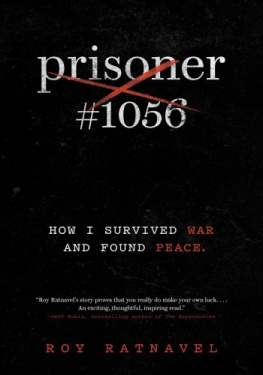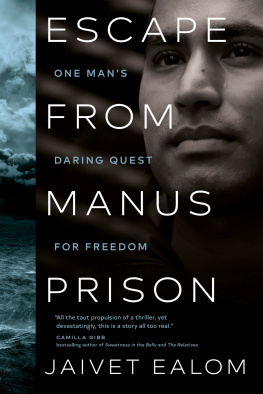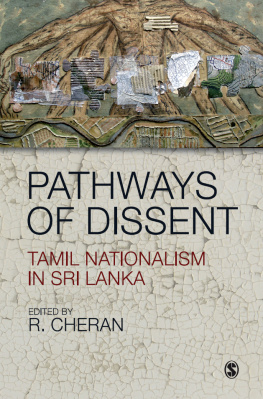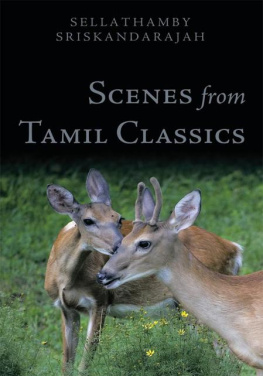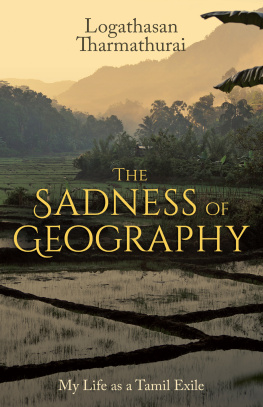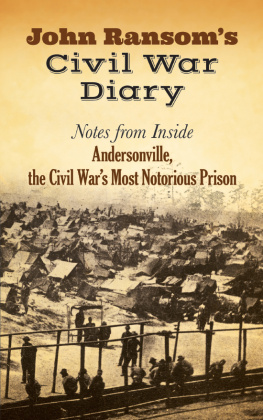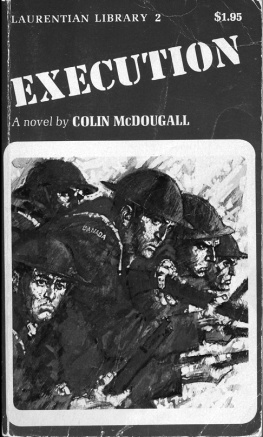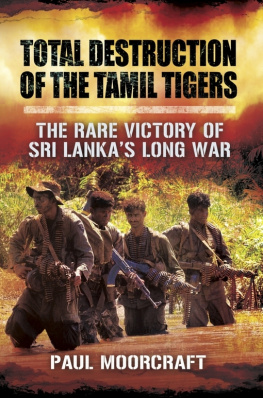VIKING
an imprint of Penguin Canada, a division of Penguin Random House Canada Limited
Canada USA UK Ireland Australia New Zealand India South Africa China
First published 2023
Copyright 2023 by Roy Ratnavel
All images courtesy of the author unless otherwise stated.
All rights reserved. Without limiting the rights under copyright reserved above, no part of this publication may be reproduced, stored in or introduced into a retrieval system, or transmitted in any form or by any means (electronic, mechanical, photocopying, recording or otherwise), without the prior written permission of both the copyright owner and the above publisher of this book.
www.penguinrandomhouse.ca
Ebook ISBN9780735245730
LIBRARY AND ARCHIVES CANADA CATALOGUING IN PUBLICATION
Title: Prisoner #1056 : how I survived war and found peace / Roy Ratnavel.
Other titles: Prisoner number 1056 | Prisoner number one thousand fifty six
Names: Ratnavel, Roy, 1969 author.
Identifiers: Canadiana (print) 20220220158 | Canadiana (ebook) 20220220166 | ISBN 9780735245723 (hardcover) | ISBN 9780735245730 (EPUB)
Subjects: LCSH: Ratnavel, Roy, 1969 | LCSH: RefugeesSri LankaBiography. | LCSH: RefugeesCanadaBiography. | LCSH: Tamil (Indic people)CanadaBiography. | LCSH: Financial executivesCanadaBiography. | LCSH: BusinessmenCanadaBiography.
Classification: LCC DS489.86.R38 A3 2023 | DDC 954.9303/2092dc23
Book design by Dylan Browne, adapted for ebook.
Cover design by Dylan Browne
Cover images: (grunge frame) LoudRedCreative, (stone texture) Jackyenjoyphotography, both Getty Images
a_prh_6.0_143280110_c0_r0
This book is dedicated to freedom and democracy.
My appreciation for both is boundless.
Death is not extinguishing the light; it is only putting out the lamp because the dawn has come.
Rabindranath Tagore
CONTENTS
ACKNOWLEDGEMENTS
I wrote this book as an act of gratitude to my father, whom I observed intently as a young boy. He instilled in me a love of the English language. By observing and listening to him, I learned how humanity functions. Learning English from him helped me put this knowledge into words.
I would not have been able to write this book without the invaluable insights I received from my publisher Penguin Random House Canada, editor Nick Garrison, and my mentor Bill Holland, who provided unrelenting support. As well, I would like to acknowledge my literary agent Michael Levine at Westwood Creative Artists for his tireless efforts to promote this project widely. Special thanks to Jonathan Kay; it was out of our periodic discussions over the last decade of our friendship that some of the ideas explored in this book were developed.
I am also deeply indebted and thankful to my dear friend Bahi Kandavel for donating countless hours of his personal time and providing me with very honest feedback at every stage of this project; without him, it would not have been possible to complete this work. He made me realize how rewarding and enjoyable the process of creating a book can be.
Finally, Im grateful to my wife, Sue, and son, Aaron, for never once complaining when I spent many hundreds of hours working on this book. They never once said, Youre wasting your time! Come and spend time with us instead. This book would not have been possible without them. Throughout this book project, I have been thankful for their love and understanding and for all the encouragement they have given me. Especially to my wife for always putting up with my craziness and for being endlessly tolerant and supportive.

THE PRISONER
There are some places that will surprise you. There are places that melt away your assumptions and your prejudices, places where your cynicism seems irrelevant. They lead you to believe that maybe there is hope in the world. Point Pedro was one of those places. At least thats how I remember it. The consensual chaos of daily commerce, the aromas of unforgettably delicious food. Tough, immensely proud people who put a lot of value in education and a strong family.
My Amm ( mom ), A ( elder brother ), and I lived in Point Pedro, my familys ancestral town. Sri Lankalocated in the Indian Ocean just eighteen nautical miles from the southern tip of Indiais a country shaped like a teardrop, and Point Pedro is on the northern tip. Its tall white lighthouse looks over the Bay of Bengal, towering there as a guardian of the land and a friend to those navigating the unfriendly waves. Along the eastern side of the teardrop, sand dunes as tall as one hundred feet form a beach twenty miles long and three miles wide.
Point Pedro was named by the Portuguese when they colonized Sri Lanka in 1505 Ponta das Pedras meaning the Rocky Cape . The name of the town in Tamil is Paruthithuai, which means Cotton Harbour . Cotton was grown around Point Pedro in the fertile yellow soil. The harbour exported cotton to South Indias textile industry for centuries. Only a few kilometres apart, South India and Northern Sri Lanka have had a commercial trade relationship that was further strengthened through a shared language and culture since the dawn of the Iron Age.
At sunrise, fishing boats would return from the unpredictable Indian Ocean to the narrow beaches of the northern shore with their daily catch, adding to the commercial chaos. Womens fatigued and concerned eyes would gleam with relief at the sight of their men on the horizon, returning safely from the rough sea. They had survived another night.
Point Pedro is my hometown. I wasnt born there, however. I was born in the south of the country, in the capital city of Colombo. That was where my App ( dad ) worked, at The Ceylon Government Railway as an administrator, when I was born in 1969.
But storm clouds of ethnic resentment had hung over Sri Lanka from the moment the British left in 1948. As the colonial administration wound down, strife between two linguistic groupsminority Tamils, who are predominantly Hindus, and majority Sinhalese, mostly Buddhistsbegan to ferment. Whether intentionally or not, the British poisoned the well of their former colony on the way out the door when they transferred power to the Sinhalese majority. February 4, 1948, marked the end of one form of injustice and the beginning of another. The relations between the two groups could only be volatile from that moment on. The country was on an irreversible and ugly path. For Tamils, it marked the beginning of the endof not only freedom but also hope of a better future.
A plaque at the northernmost tip of the island bears the Sri Lankan flag and the motto Unity in Diversity Is the Strength of Sri Lanka. But the residents of Point Pedro did not quite see things that way. The city is in the Vaamarchi region, which literally means rule of the Northerners in Tamil. It was the birthplace of the Tamil resistance movement.
Soon after the British left behind Sri Lankas treasuresrich tea crops nestled amidst majestic mountains, picturesque and pristine beaches, precious stones such as sapphires and garnetsSri Lankas first prime minister enacted discriminatory laws against Tamils that, over time, turned the young promising nation into a hell on earth for Tamils. Sri Lanka passed the Sinhala Only Act, which replaced English with Sinhala as the only official language of the country. Tamils saw this as a deliberate attempt to discourage them from working in the Sri Lankan government and other public services. Instead of sunshine in independent Ceylonas it was formerly knowndarkness set on divided Sri Lanka.
This darkness would last for many decades, consume countless lives, and leave scars that would define a generation. I was part of a generation who found ourselves on the wrong side of Sri Lankas racial order.
Next page
